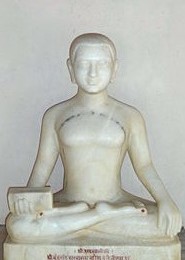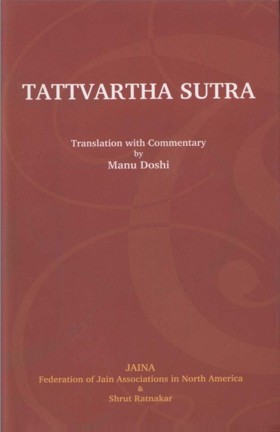02.15 Panchendriyāni
Audio: Sanskrit: पंचेन्द्रियाणि ।
Hindi: इन्द्रियां पांच है ।
02.16 Dwividhāni
Audio: Sanskrit: द्विविधानी ।
Hindi: प्रत्येक इन्द्रिय 2 / 2 प्रकार की है! 1) द्रव्येन्द्रिय 2) भावेंद्रिय
02.17 Nirvrttyupakarane Dravyendriyam
Audio: Sanskrit: निवृत्युपकरणे द्रव्येन्द्रियम् ।
Hindi: द्रव्येन्द्रिय के दो भेद है - 1. निवृति और 2. उपकरण
02.18 Labdhyupayogau Bhāvendriyam
Audio: Sanskrit: लब्द्युपयोगौ भावेन्द्रियम् ।
Hindi: भावेन्द्रिय के 2 भेद है - लब्धि और उपयोग ।
02.19 Upayogah Sparshādishu
Audio: Sanskrit: उपयोग: स्पर्शादिषु ।
Hindi: उपयोग स्पर्श आदि विषयों में होता है ।
02.20 Sparshanrasanghrānchakshuhshrotrāni
Audio: Sanskrit: स्पर्शनरसनघ्राणचक्षु:श्रोत्राणि ।
Hindi: स्पर्शन, रसना, घ्राण, चक्षु और श्रोत्र ये पांच इन्द्रियां है।
02.21 Sparshrasgandhvarnashabdāsteshāmarthāh
Audio: Sanskrit: स्पर्शरसगन्धवर्णशब्दास्तेषा मर्था: 2/21
Hindi: पांच इंद्रियों के पांच विषय है-स्पर्श, रस, गन्ध, वर्ण और शब्द ।
02.22 Shrutamanīndriyasya
Audio: Sanskrit: श्रुतमनिन्द्रियस्य!! 2/22
Hindi: श्रुत (भावश्रुत) मन का विषय है ।
श्रुत शब्द यहाँ केवल सुनने के लिए प्रयुक्त नहीं हुआ है! सुनना काम तो श्रोत्र इन्द्रिय का है।
02.15-22
English: Skin, tongue, nose, eyes and ears are the five sense organs. They are physical and are therefore termed as Dravyendriya. They are the means of acquiring knowledge, while the capability to know rests within. That is termed as Bhāvendriya (modal organ), its capacity to know depends upon the extent to which the defiling Karmas are overcome. That capability is exercised by applying it to the objects of physical senses, viz. touch, taste, odor, sight and sound. Their jurisdiction prevails in the realm of intellect. Moreover there is the mind, which is an internal organ. Its capability prevails in intellectual as well as scriptural realm. Since it relates more to the latter, it is said here that the scriptural realm constitutes the jurisdiction of mind.
 Acharya Umaswati
Acharya Umaswati
